In the world of business, open communication is key, especially when it comes to addressing concerns from valued partners. Acknowledging a complaint is not just about recognizing an issue; it's an opportunity to strengthen relationships and show commitment to excellence. By actively listening and responding thoughtfully, organizations can turn challenges into collaborative solutions that benefit everyone involved. Curious to learn how to craft the perfect acknowledgment letter? Read on!

Polite and formal tone
Business partnerships require ongoing communication and understanding to navigate challenges. Timely acknowledgment of concerns helps maintain strong relationships. Complaints may arise from issue areas such as service delays, product quality, or communication gaps. Addressing these promptly not only demonstrates professionalism but also enhances trust. A formal response should empathize with the partner's feelings, outline steps taken to investigate the matter, and propose solutions or improvements. Maintaining a polite tone fosters collaboration, essential for resolving conflicts and reinforcing a commitment to shared success. Such dialogues contribute to sustaining long-term partnerships and improving overall operational effectiveness.
Reference to specific complaint
Acknowledging a business partner's complaint regarding service delays can be pivotal in maintaining a strong professional relationship. In recent correspondence dated October 15, 2023, your organization expressed concerns regarding shipment delays affecting project timelines. These delays, specifically involving supplies sourced from the New York distribution center, have impacted the overall efficiency of operations. Furthermore, the disruption caused by unexpected logistics challenges in the supply chain has resulted in significant setbacks. Our commitment to addressing this issue is paramount, and we are currently implementing solutions to enhance communication and expedite processes, ensuring this situation does not recur. Continuous collaboration and transparency are key to resolving these concerns swiftly.
Express appreciation for feedback
Acknowledging feedback from business partners is crucial for maintaining strong relationships. Feedback, such as concerns regarding product delivery schedules or service quality, provides valuable insights into operational improvements. Appreciating this feedback fosters an environment of open communication. For instance, implementing changes based on feedback can enhance customer satisfaction scores, which were reportedly at 78% last quarter. Regularly addressing complaints can also strengthen business partnerships, ensuring long-term collaboration and mutual growth. Taking proactive steps to resolve issues, such as scheduling follow-up meetings or providing detailed action plans, can significantly improve partner relations.
Outline steps for resolution
A business partner's complaint can significantly impact collaboration and overall productivity. Acknowledging the issue is crucial in maintaining a strong partnership. Initial steps include carefully reviewing the complaint details, emphasizing the importance of the partner's concerns. Next, assembling a dedicated team to address the issues raised ensures a comprehensive approach. Scheduling a meeting to discuss the complaint allows for open communication and a clear understanding of the partner's perspective. Following this, developing a resolution plan that outlines specific actions, timelines, and responsibilities provides clarity and accountability. Finally, establishing a feedback loop enables ongoing dialogue, ensuring the partner feels heard and valued while preventing future issues.
Offer further communication channels
Acknowledging a business partner's complaint is essential in maintaining a strong professional relationship. Clear communication can ensure resolution and prevent future misunderstandings. Providing additional channels of communication, such as phone lines, email addresses, or dedicated support chat options, can foster quick and effective dialogue. It's crucial to highlight available times for follow-up discussions and specify response times for emails or messages. By offering multiple avenues for addressing concerns, businesses establish strong trust and demonstrate commitment to resolving issues collaboratively.

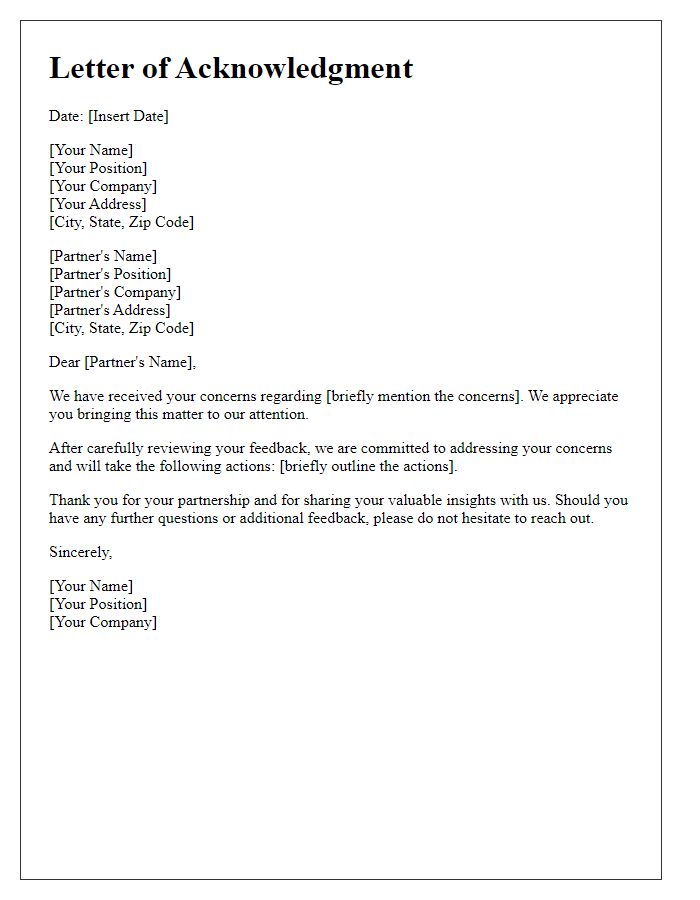
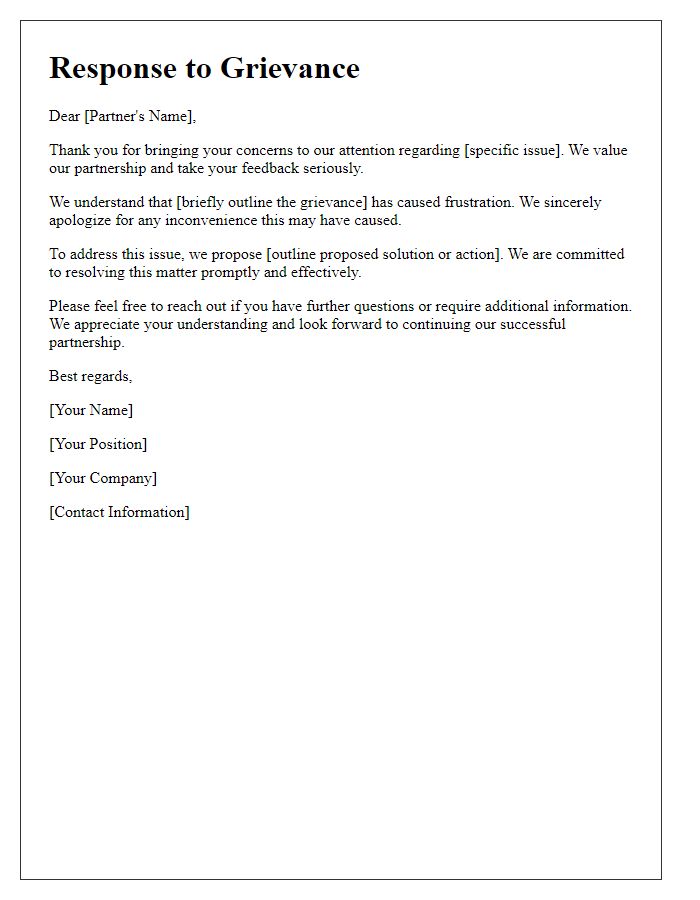
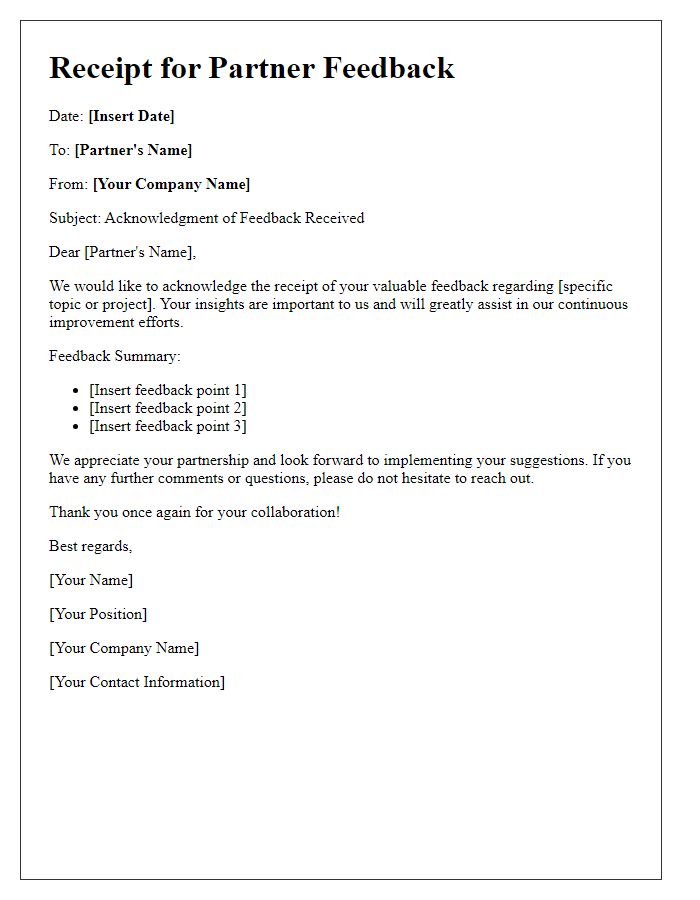
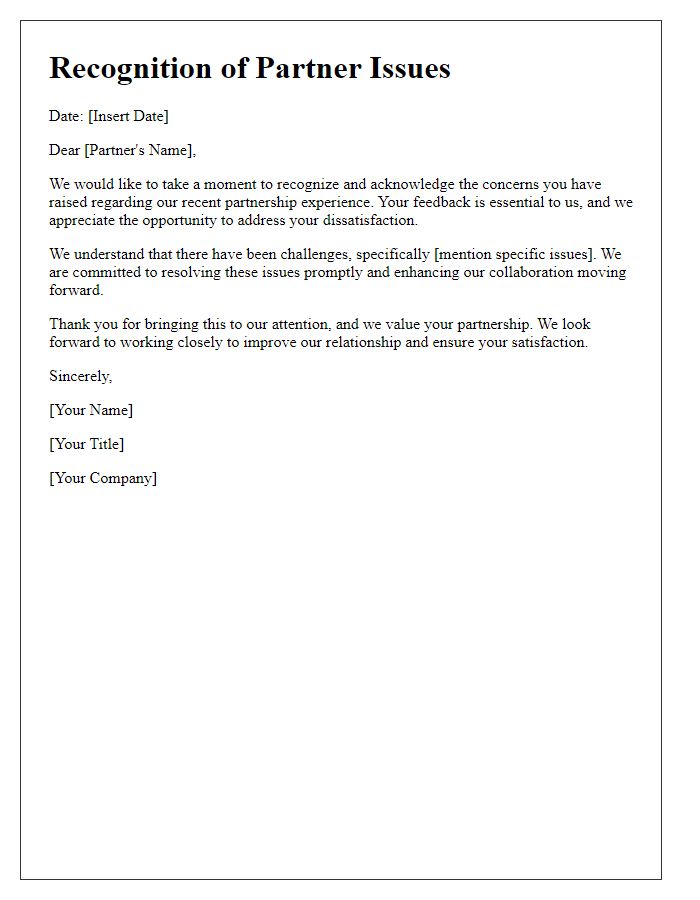
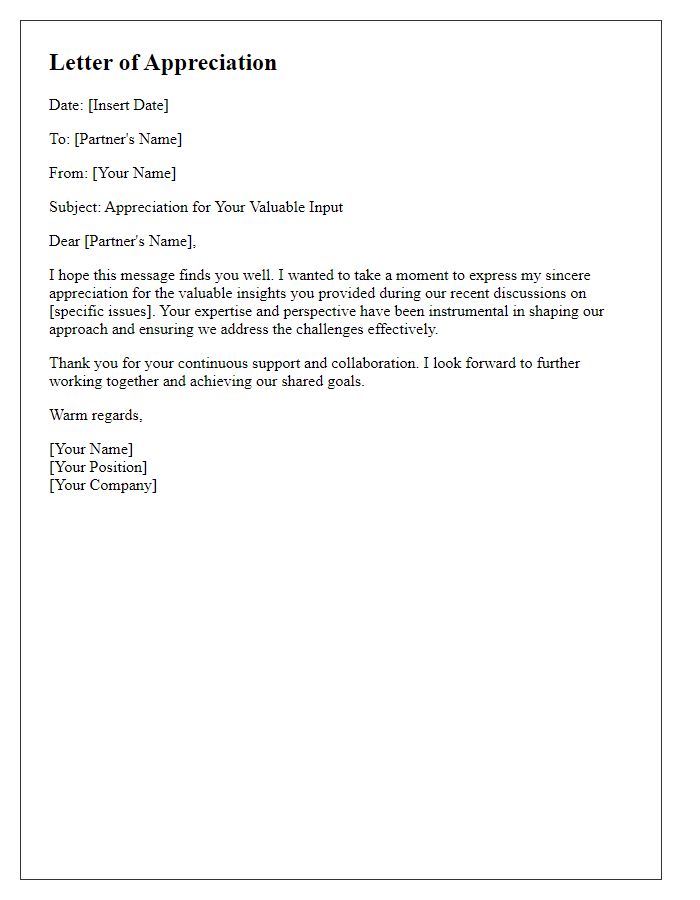
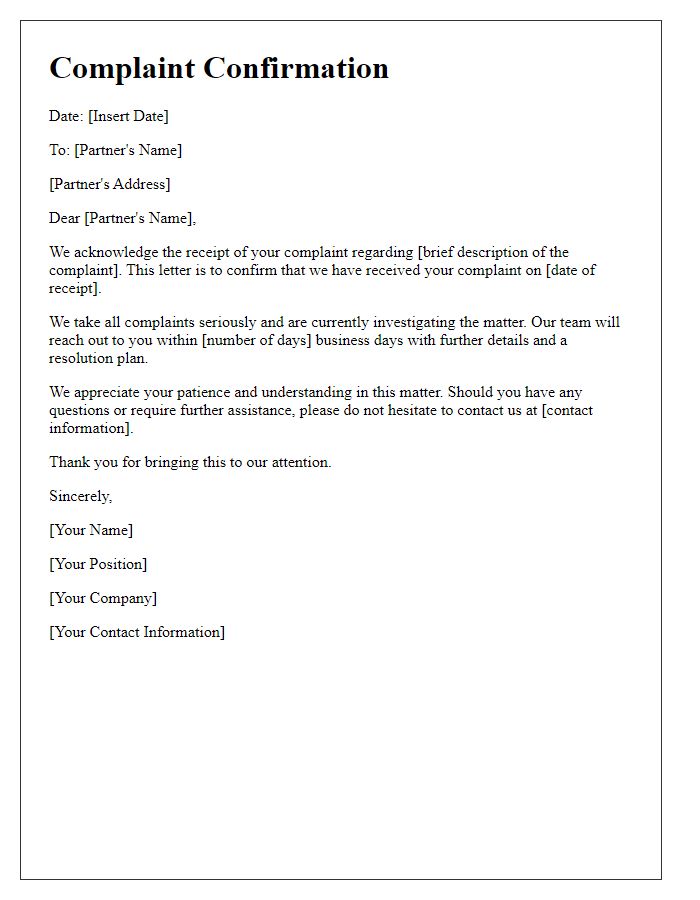
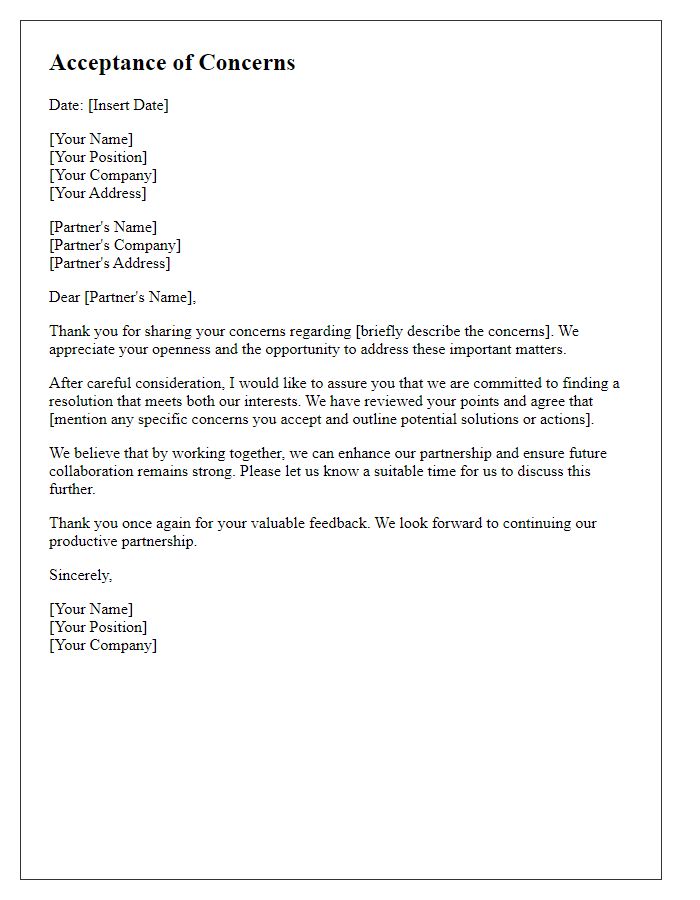
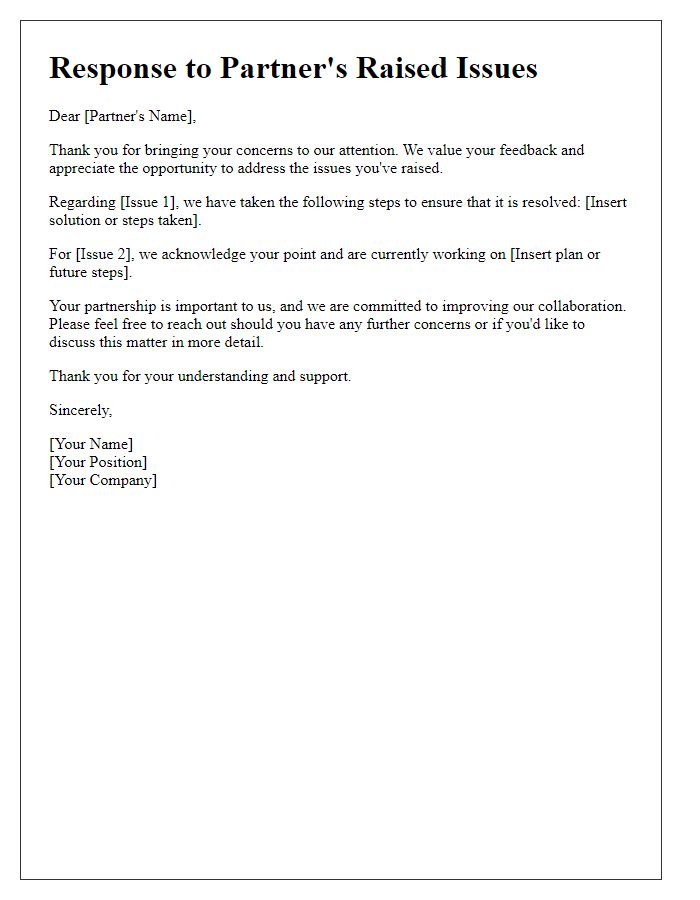
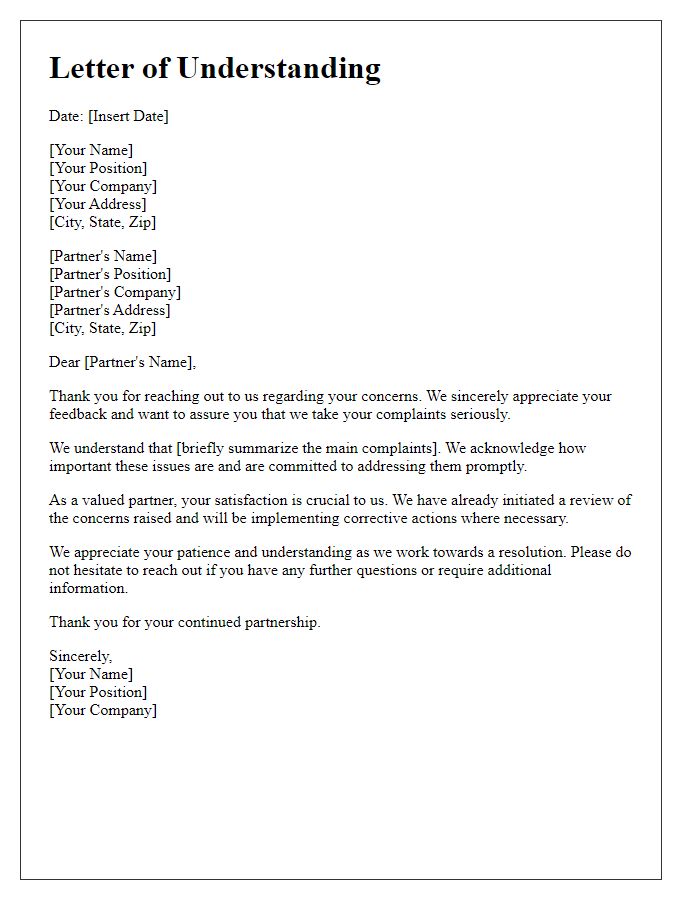
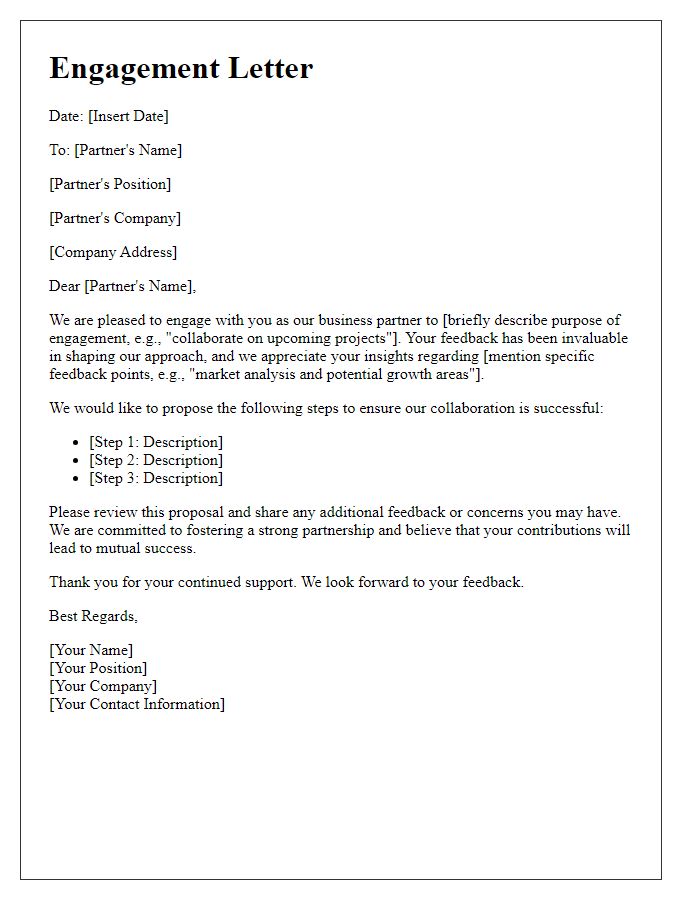


Comments